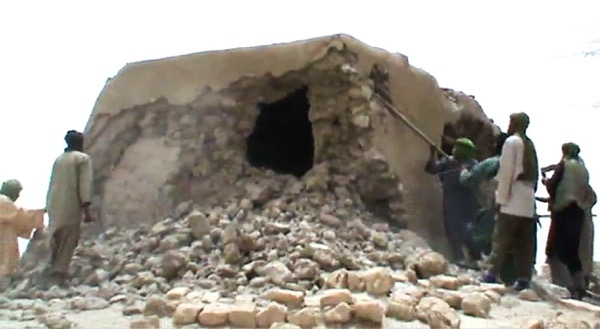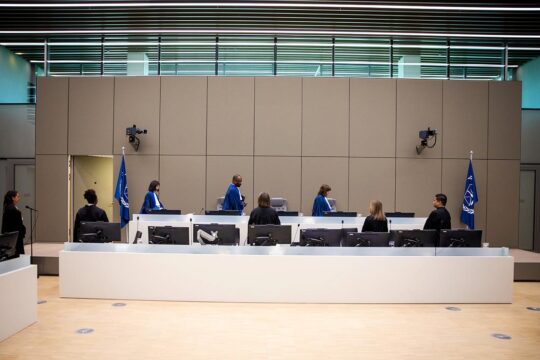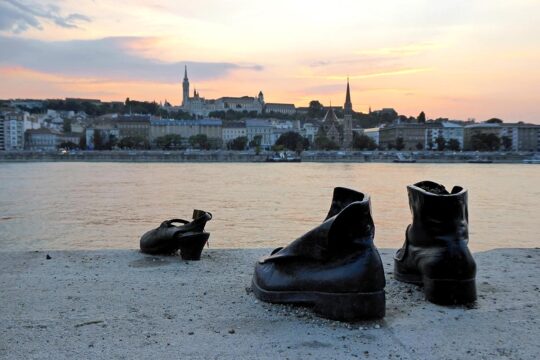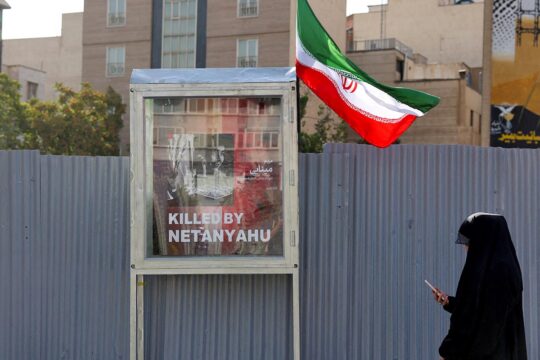A Touareg leader from a Malian Islamist group linked to Al-Qaida, suspected of directing the 2012 destruction of mosques in Timbuktu, appeared on Wednesday before the International Criminal Court (ICC). His case is a first in several respects for the ICC. Ahmad Al Faqi Al Mahdi is the first Jihadist before the Court, the first suspect arrested in the ICC investigation on Mali and the first person the Court has ever sought to prosecute for destroying religious buildings and historic monuments. Professor Jean-Marc Sorel of the Sorbonne in Paris says this is a symbolic as well as historic case for the ICC.
Al Mahdi’s "initial appearance" on Wednesday, expedited in some 30 minutes, follows his transfer overnight Friday to the ICC detention centre in The Hague. He had previously been detained in Niger. The suspect, dressed in a dark blue suit, light-coloured shirt and red tie, bearded, bespectacled with thick, curly hair, addressed the Court in Arabic. “My name is Ahmad Al Faqi Al Mahdi, from the Touareg Al Ansar tribe, and I was born about 40 years ago," he told the judge who asked him to identify himself. “I was a civil servant in the education department of the Malian government in 2011."
Judge Cuno Tarfusser then asked the Registry to read out the charges. Al Mahdi is accused of being “criminally responsible for having committed, individually and jointly with others, facilitated or otherwise contributed to the commission of war crimes alleged by the Prosecutor regarding intentionally directing attacks” against a number of mausoleums and a mosque. The judge then informed the suspect of his rights. “You are presumed innocent until proven otherwise,” said Judge Tarfusser. The prosecution says Al Mahdi was one of the leaders of Ansar Dine, a radical Islamist group linked to Al-Qaida in the Islamic Maghreb (AQMI).
Jean-Marc Sorel is professor of public law at the Sorbonne University in Paris. He spoke to JusticeInfo.Net about the significance of this case.
Justiceinfo.Net: Is destroying a cultural or religious building a war crime under the Rome Statute and is this charge without precedent?
Professor Jean-Marc Sorel: Yes, we are indeed talking about a “war crime” as specified (in a long list) in Article 8 of the Rome Statute (editor’s note: the founding text of the ICC) on war crimes. This Article includes “intentionally directing attacks against buildings dedicated to religion, education, art, science or charitable purposes, historic monuments, hospitals and places where the sick and wounded are collected, provided they are not military objectives”. So far as I know, this charge is the first as such (although it is possible that this charge has been slipped in amongst other crimes in another case).
JusticeInfo.Net: If he had destroyed the Timbuktu Town Hall, could he have been charged under the same provision?
J-M S: Yes, but under a more general provision of the Article (still Article 8 on war crimes) , for example “extensive destruction and appropriation of property, not justified by military necessity and carried out unlawfully and wantonly” or “intentionally directing attacks against civilian objects, that is, objects which are not military objectives” or “attacking or bombarding, by whatever means, towns, villages, dwellings or buildings which are undefended and which are not military objectives”.
JusticeInfo.Net: Do you think the ICC wants to set an example because of Palmyra and monuments destroyed in Iraq?
J-M S: Yes, that is clear. It is targeting this person with this charge among other possible targets, to send a signal. So there is clearly a will to link this to Palmyra or the destructions in Iraq by Islamic State.
JusticeInfo.Net: Why was he not charged as leader of Ansar Dine?
J-M S: To be honest I don’t know, but I suppose my previous response also answers this question. In any case, at the end of the day, it doesn’t change much. He could be found to be such in the course of this procedure.
JusticeInfo.Net: Why does Mali prefer that he be tried by the ICC? Wouldn’t the case set more of an example if it were held in Timbuktu itself, near the victims?
J-M S: He was arrested in Niger, which means a simple “transfer” was enough to send him to the ICC, whereas an extradition procedure is often much more complicated. Bringing a case in Timbuktu would perhaps set more of an example but there would be less security and it could perhaps re-ignite violence.







